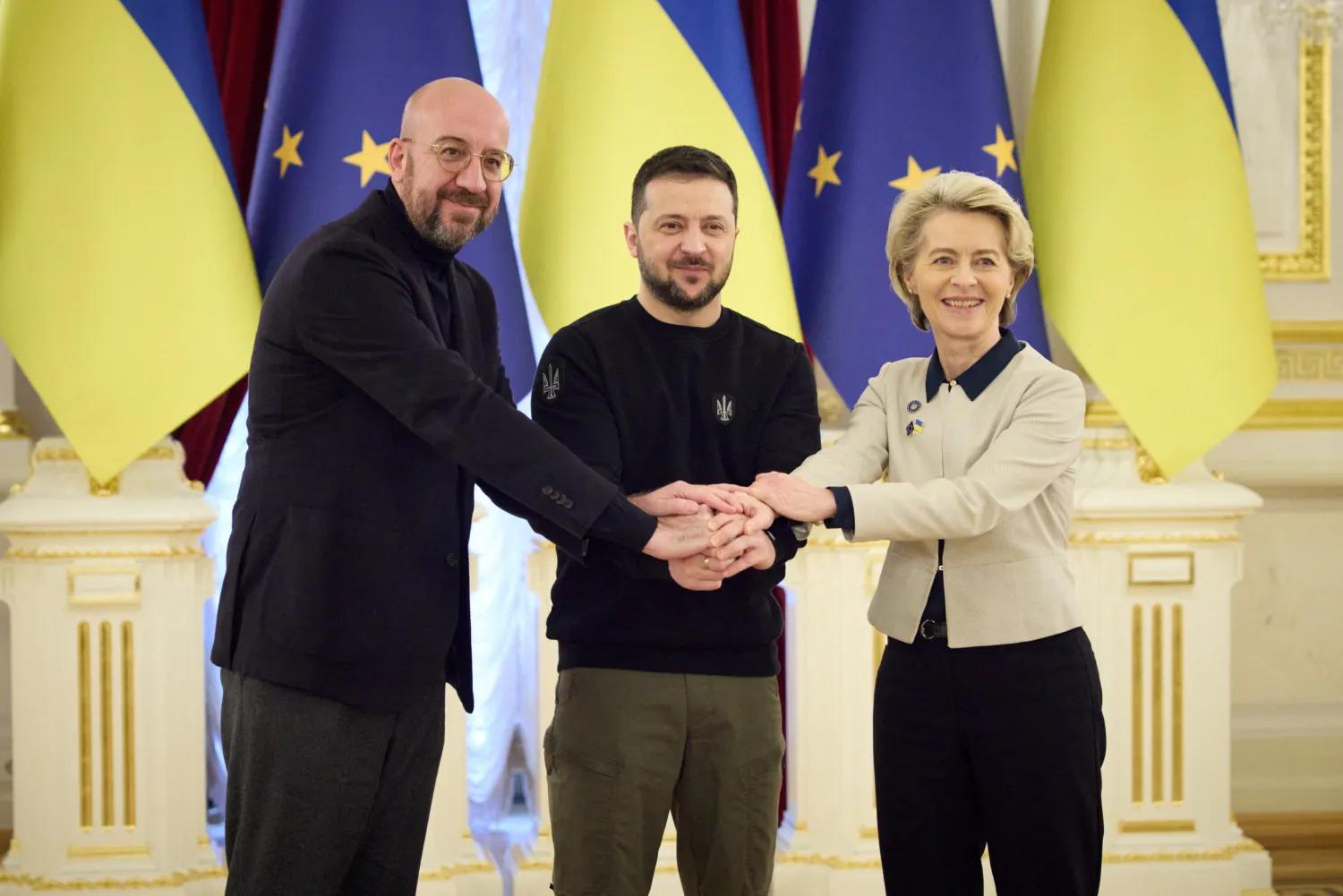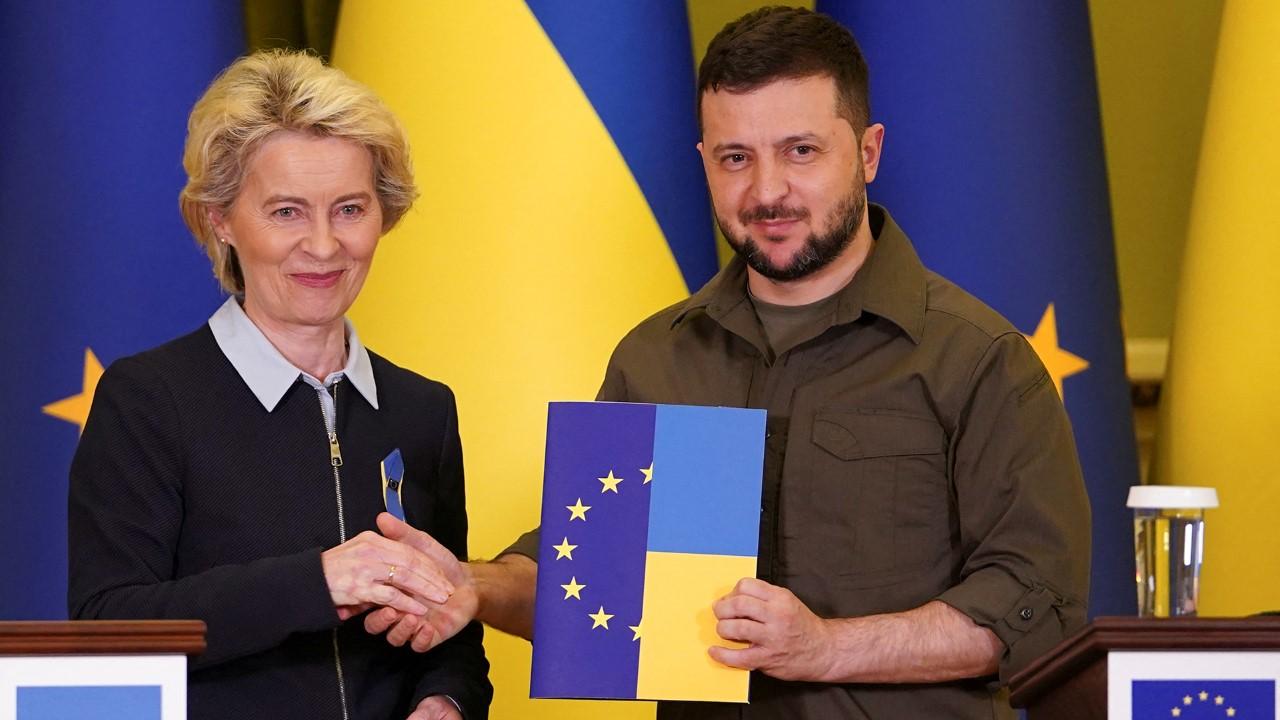Prospects for Ukraine’s accession to the European Union Bumpy road to freedom
On June 25, the European Union (EU) announced that it started formal talks on membership with Moldova and Ukraine, a decade after Russian troops seized the Crimean Peninsula to deter the country from moving closer to the West.
Ukraine's President Volodymyr Zelenskyy called it a "historic day" ahead of the start of talks between officials from Kyiv and the EU's 27 member states in Luxembourg. Ukraine and, later, its neighbour Moldova lodged their bids to join the EU in the immediate aftermath of Russia's all-out assault in February 2022. The start of the talks marked just the beginning of a protracted process of reforms strewn with political obstacles that will likely take many years.
Although official Kyiv and Chisinau seem optimistic regarding the membership status, some EU member states such as Hungary, Slovakia, Germany, and others voice their scepticism. However, the issue of Ukraine and Moldova put the EU in a very challenging dilemma as the membership of Ukraine is of particular importance for the West to keep supporting Kyiv against Russia’s invasion efforts. Russia’s recent advancements and military gains in Ukraine emboldened the EU to demonstrate firm support for Ukraine in light of criticism and pressure. Simply put, Russia’s war in Ukraine has reinvigorated the EU’s efforts to expand its membership, much to Moscow’s chagrin.

The start of EU membership negotiations is one of many milestones in a typically years-long process, where countries are required to make judicial, economic, and constitutional reforms before they can be considered ready to join the EU. It has taken around a decade on average for previous candidates to join the bloc. For example, other Balkan states – Albania, Montenegro, Bosnia, and Serbia are engaged in long-term formal negotiations to become EU members, though with no success.
Despite positive dynamics between the EU and Ukraine–Moldova that has been cemented since 2022, relations between Brussels and Kyiv are not that smooth. For example, in a less welcome development, the EU is set to reimpose tariffs on Ukrainian sugar and egg imports until June 2025. The reimposition of tariffs underlines how difficult Kyiv’s accession negotiations will be. Ukraine is an agricultural powerhouse that can produce food more cheaply than EU member states and would still become the main beneficiary of farm subsidies.
Consequently, the membership of Ukraine in the EU is a relevantly new phenomenon. First, in 2003, Romano Prodi – then President of the European Commission, suggested the idea of integration of Ukraine into the EU, though with no result. The same idea was reiterated in 2013, one year before the Ukraine war unfolded, but the EU agenda was absorbed by the internal problems caused by the euro crisis. Eventually, Ukraine submitted a formal application to join the EU four days after the Russian invasion. Nearly four months later, the EU declared the country a candidate, giving a strong sense of European political solidarity with Kyiv.

Indeed, Ukraine’s EU membership is a long-term goal. In the short term, the focus should be on aid and reconstruction. It is important to focus on tangible, ambitious, but also achievable goals in the short term. Moreover, candidate status does not necessarily offer guarantees, and according to certain experts, a stage-based approach should be selected to reach a consensus among the other member states.
The current situation on the frontline suggests that Ukraine and Russia would face a military draw and subsequently reach a status quo deal, leaving already occupied Ukrainian territories under Russian control. This would most likely imply the indefinite "freezing" of the conflict. As a result, Ukraine would face a permanent security threat on its borders and lose access to the Azov Sea, while its Black Sea ports would remain blocked.
Nevertheless, Kyiv intends to keep resisting and seeking more military-financial aid from the West to counter the Russian invasion. Therefore, prospects of the EU and NATO membership seem to be an inevitable and viable option for Ukraine amid devastating war and depleting human and economic resources.








